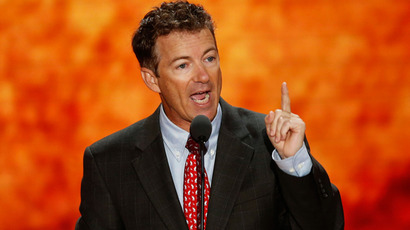US $85 billion budget cut under fire

Massive budget cuts, called a sequester, are due to take effect on March 1, and have divided US lawmakers with two camps batting the blame for the impasse.
The US government is being forced to make drastic cuts in domestic and defense spending with hardly any elbow room to save some programs from the budget guillotine. The White House released a state-by-state breakdown of the $85 billion reduction in government services, including the lay-offs of thousands of teachers, salary cuts for civilian defense employees, cuts in medical research, scaled back food inspections and an increase in travel delays at major airports. The sharp decline in public spending will also threaten the fragile economic recovery, with the non-partisan Congressional Budget Office estimating the sequester will cut 0.6% off 2013 growth.
US Defense Secretary Leon Panetta said the cuts would harm the readiness of US fighting forces. Transportation Secretary Ray LaHood said travelers could see delayed flights. Education Secretary Arne Duncan said 70,000 fewer children from low-income families would have access to Head Start programs. Furloughed meat inspectors could leave food processing plants idle.
The Bipartisan Policy Centre, a Washington think tank, estimated that one million fewer jobs will be created if the sequester goes through.
The automatic March 1 cuts were agreed during the bare-knuckled budget talks of 2011, and are intended as a poison pill to force an agreement on a more palatable alternative, but on Sunday there was still no sign of a breakthrough.
"It's going into effect because the Republicans are choosing for it to go into effect," senior White House adviser Dan Pfeiffer told reporters during a conference call on Sunday.
The Republicans have welcomed the cuts in principle but demanded more flexibility and were particular annoyed that the sequester in its original draft would hit defense spending especially hard.
President Barack Obama has urged Congress to consider the budget deal more broadly with a short-term measure that boosts revenues by ending some tax breaks for the wealthy.
Senate Democrats have put forward a plan that focuses on those
tax loopholes, and Republicans are expected to propose alternatives
later in the week. But there has been almost no negotiation between
the White House and Congress on the issue.














